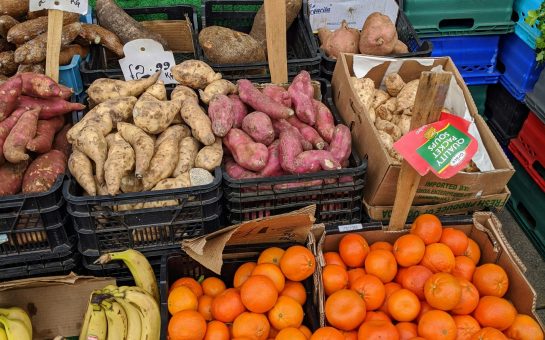This January saw more people than ever sign up for Veganuary, with as many as a million and a half Britons adopting a more plant-based diet, new statistics show.
Over 582,000 people from 209 countries officially signed up to Veganuary in 2021 via the campaign’s website to make it the most successful year yet, but reports have estimated that the number was actually much higher.
Data from Kantar suggested that each year ten times more people actually participate and try vegan in January than register through the Veganuary website. That would mean more than five million people around the world took part in the 2021 campaign.
A YouGov survey of 4,242 adults in Great Britain indicated that at least 5% of the population followed a vegan diet during the whole month or part of the month of January.
Veganuary said that this equals about three million people in total, with half of those Brits intending to continue a more plant-based lifestyle after January.
This has been called the ‘Veganuary Effect’, and with more vegan products than ever hitting supermarket shelves, plant-based options are much more accessible.
Veganuary estimated that 825 new vegan products and restaurant options were added this January alone.
Student Alex Manning, 23, from Richmond, has taken part in Veganuary for the past two years, and believes being a ‘part-time’ vegan eater is doable.
He said: “It is easier to be vegan now more so than ever. Last year there were a lot of options but just a year later there are tonnes more.
“This year I actually went vegan for two months and I ate a wider range of food than I usually do. It feels a lot healthier.”
Marks and Spencer’s sold one of its No Salt Beef Pretzel Rolls every 30 seconds, and its Plant Kitchen Vegan Cookie was its most popular single cookie.
Meanwhile, Leon’s newly launched Vegan Sweet Carolina BBQ Burger became its bestseller, and Pret a Manger’s Meatless Meatball Hot Wrap was its first-ever new product to become a top-five bestseller on launch week.
Veganuary CEO Ria Rehberg said: “This year, more than ever, I feel that another world is possible.
“A world where plant-based food is the mainstream choice, where the word ‘vegan’ is associated with something positive and desirable, where major food companies are investing millions to switch to more sustainable animal-free options and are telling the world that this is the food of the future – and the food of today.”
In the UK, 46% of people took part in Veganuary for environmental reasons, while 47% of people worldwide ate vegan for health reasons.
Veganuary’s Head of Communications Toni Vernelli said: “With the link between animal farming, the climate crisis and global pandemics making headlines nearly every day, we expected Veganuary 2021 to be the biggest yet, but it exceeded all of our expectations.
“We applaud everyone who took part and encourage them to continue eating vegan food as often as possible. And we’re grateful to all of the businesses embracing Veganuary and making it easier for more people to eat more plant-based food more often.
“Together we are making an enormous difference for animals, the planet and human health.”
Veganuary claimed that more than two million animals were saved just from this year’s event alone, with the United Kingdom claiming the greatest number of participants.
Manning said he will continue to eat vegan every January, and believes it is the way of the future.
He added: “It’s not naive to think everyone will be eating a plant-based diet within 10 to 20 years, the same way car companies are no longer producing petrol or hybrid cars from 2030 onwards.
“Animal agriculture is the single biggest contributor to greenhouse gasses. Going vegan is the biggest single contribution that an individual can make to reduce their environmental impact.
“One steak requires a ridiculous amount of water. Loads of land is used for rearing animal agriculture and for the crops they get fed so it makes sense to just grow crops for human consumption directly.”




